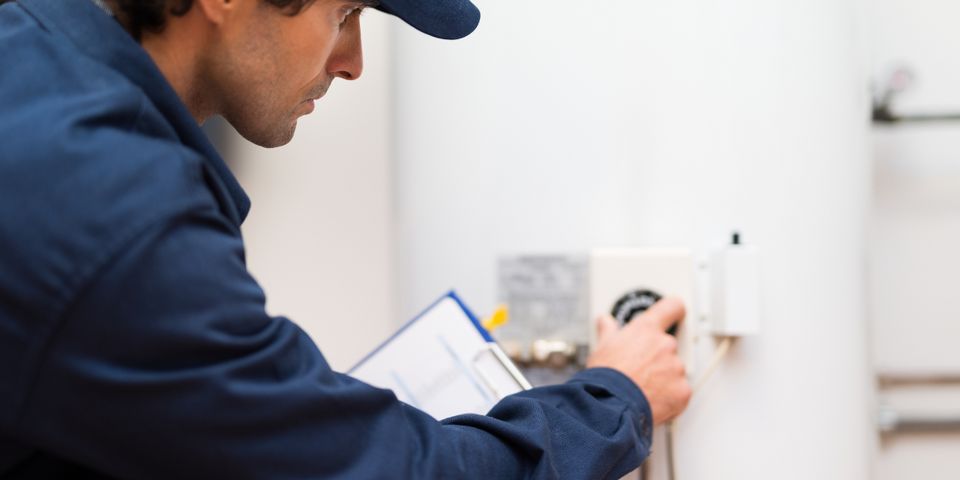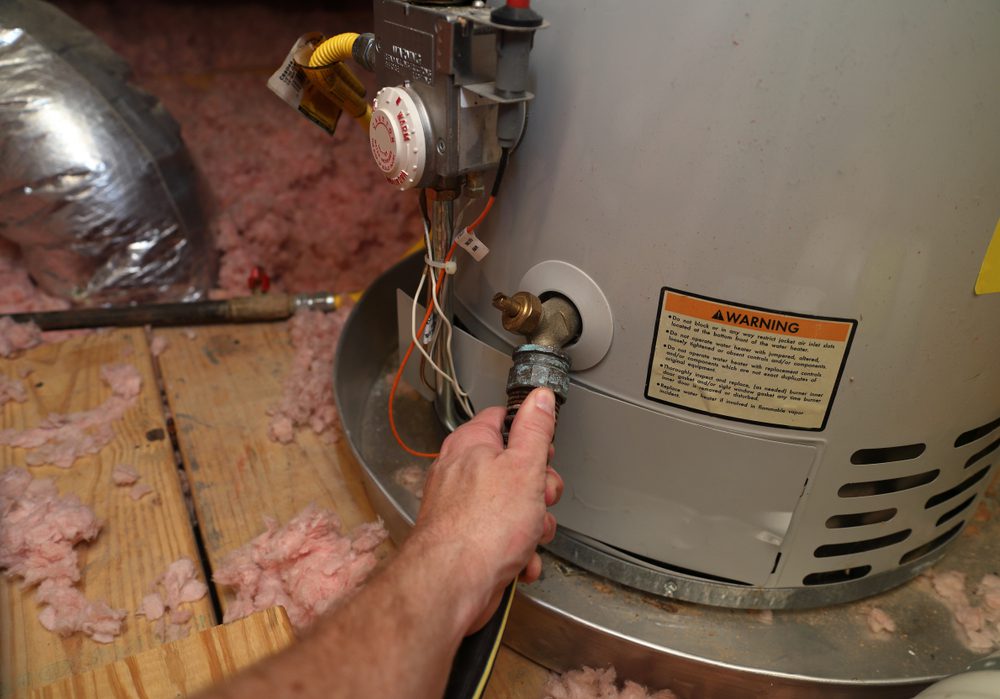Here in the next paragraph you will find a lot of good quality ideas pertaining to Is Your Water Heater Leaking?.

A water heater is among one of the most crucial standard appliances that can be located in a home. With hot water heater, you don't need to experience the stress and anxiety of home heating water manually each time there is a need to take a bath, wash, or the meals. However, there is always an opportunity that your water heater would break down just like most mechanical devices.
It is important to note any type of little breakdown as well as tackle it promptly before things leave hand. The majority of times, your hot water heater starts to malfunction when there is an accumulation of sediments as a result of continual usage. As a preventative measure, periodic flushing of your water heater is suggested to stop sediment accumulation and stop functional failure.
Usual water heater emergency situations and also how to take care of them
Dripping water heater storage tank.
A dripping container could be a sign of rust. It might create damages to the flooring, wall and electrical devices around it. You could even be at risk of having your house swamped. In this scenario, you need to turn off your hot water heater, enable it to cool, and carefully try to find the resource of the trouble. At times, all you need to do is to tighten up a couple of screws or pipeline connections in cases of minor leakages. However if this doesn't function and the leakage persists, you might need to utilize the solutions of a technician for an ideal replacement.
Fluctuating water temperature.
Your water heater might start creating water of different temperatures typically ice scalding or cold warm. In this circumstance, the first thing you do is to make certain that the temperature level is readied to the preferred level. If after doing this, the water temperature level maintains altering throughout showers or various other activities, you might have a damaged thermostat. There may be a need to change either the heating or the thermostat device of your water heater.
Too little warm water
Dealing with a not enough supply of hot water can be aggravating. It may be that the hot water heater can not support the warm water need for your apartment or condo. To manage this problem, you can attempt to readjust your heating unit's temperature dial and wait for a couple of mins. You can ask for the assistance of an expert plumber if the problem lingers. You can upgrade your water heater to one with a bigger capacity.
Tarnished or odiferous water
When this takes place, you require to understand if the problem is from the tank or the water resource. You are specific that it is your water heater that is defective if there is no funny odor when you run cold water. The stinky water can be caused by corrosion or the build-up of germs or sediments in the hot water heater container. You can attempt flushing out your tank or changing the anode if the trouble lingers once you observe this. The feature of the anode is to clean germs from your storage tank. Because the anode rod replacement requires a comprehensive expertise of your water heater, you will certainly need the assistance of a professional.
Verdict
Some property owners ignore little caution and minor faults in their water heater device. This just brings about further damage as well as a possible full failure of your home appliance. You must manage your hot water heater mistakes as soon as they come up to prevent even more costs and also unneeded emergency difficulties.
With water heating units, you don't require to go via the stress of home heating water manually every time there is a demand to take a bath, do the washing, or the dishes. Your water heater could start generating water of different temperatures generally ice chilly or scalding warm. It may be that the water heating unit can not support the warm water demand for your home. If there is no funny scent when you run cold water, then you are particular that it is your water heater that is malfunctioning. The odiferous water can be triggered by corrosion or the build-up of bacteria or sediments in the water heater container.
What’s Wrong With My Water Heater?
Not Enough Hot Water
You probably encounter this problem in the shower or while washing dishes. As you run your water, you’ll notice it starting to cool down. Turning up the hot faucet may not work, or it may only heat the water for a short period. Your hot water probably comes back and works normally one or two hours after you use it up.
If you’ve never had enough hot water, your heater may be too small for your home. If you haven’t had a problem until recently, there’s probably something’s wrong with your heater’s thermostat. Try adjusting it to see if you can feel a difference. Even if the thermostat’s working, the heating element itself could have burnt out. It’s also possible that a clog has restricted water flow into or out of the heater. Luckily, none of these problems are hard to fix, as long as you call them in early.
Water is Too Hot
Unregulated water heaters can make water dangerously hot. You probably have this problem if you’ve been scalded by your hot water. It’s also a likely culprit if you have trouble getting your faucets to produce a comfortable temperature. This problem is easy to fix, but it can also be a serious health hazard if you don’t address it. If you think your water is too hot, don’t doubt yourself; look into it!
Start by finding your heater’s thermostat and mark its position with a pen. Turn the thermostat to a cooler setting. Wait a couple hours to see if the problem is solved. If it isn’t, listen for boiling in the tank and look for water that comes out of the faucet steaming. In those cases, your temperature-pressure relief valve may be malfunctioning. This is a serious problem that can be dangerous, so you should have it looked at right away.
Discolored or Smelly Water
If all your water looks rusty or smells weird, there’s probably a problem with your pipes. If only your hot water looks weird, however, your water heater is probably at fault. Hot water discoloration comes in several varieties. It could look orange or brown-ish, taste rusty, or feel grainy. It could also look yellow or green-ish and taste gross or feel slimy. Either way, it’s a sign that there’s something wrong with your water heater’s tank.
Usually, hot water discoloration means sediment has built up in your tank. Sediment is made up of hardened minerals that accumulate on the inside of the water heater’s walls. When enough sediment builds up, it causes all kinds of problems–including your discolored water. Try flushing your water heater tank to clean out built up sediment. If the water still tastes rusty, your tank’s rust-preventing anode rod may have worn out. A pro can replace an anode rod easily, but without one, your tank could rust beyond repair relatively quickly.
Leaking
Water heaters can leak from several different places, and each leak means something different. If the leak is coming from a pipe above the heater, it’s possible the tank itself hasn’t been compromised. The cold inlet, hot outlet, and T&P pipes could all leak from above. Try tightening the problematic valve. If that doesn’t work, then the valve or pipe will have to be replaced.
If the leak is coming from the bottom of the tank, it’s important to determine exactly where it is. The leak could be coming out of the drain valve or your T&P valve below the tank. You can replace those valves and preserve the tank itself. If you notice the water tank itself leaking, however, that probably means it’s corroded beyond the point-of-no-return. Leaking water heaters are a big deal, so you should get yours replaced ASAP.
https://www.punctualplumberdallas.com/blog/whats-wrong-water-heater/

We were shown that article about Is Your Water Heater Leaking? from a good friend on our other site. Appreciated our posting? Please share it. Help other people check it out. Many thanks for your time spent reading it.
Secure top-grade service.